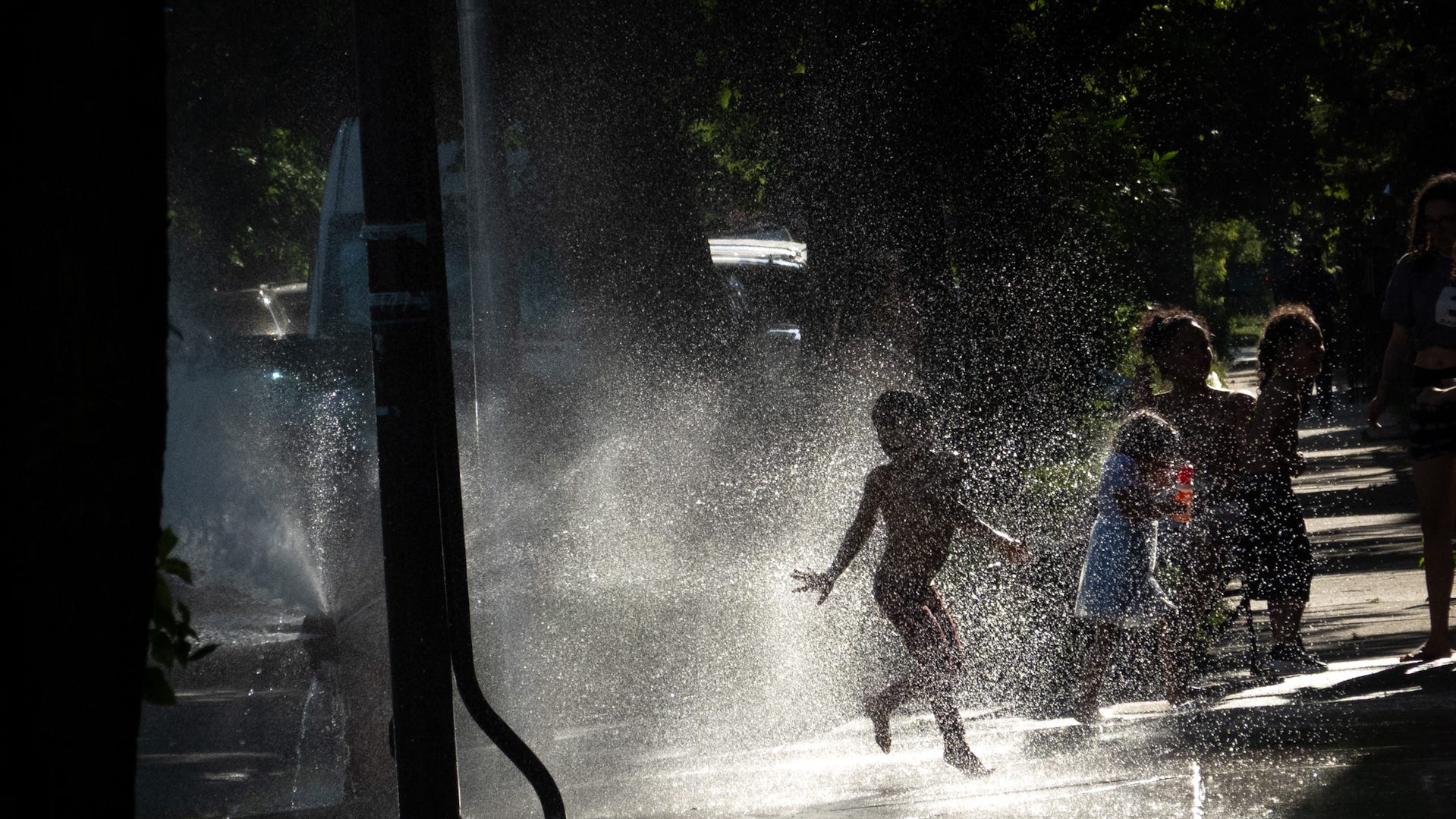Is the heat wave over yet? Do these things until the heat breaks.
A major heat wave will persist through the end of the week in some areas of the country. Here's what to do while the temperatures remain high.

Forecasters predict the worst of a record-setting heat wave may soon be over — but millions still need to take precautions to stay safe from dangerous heat.
The most significant heat conditions are expected to continue across the Mid-Atlantic through Thursday, June 26 and the eastern Ohio Valley into Friday, June 27, according to the National Weather Service.
AccuWeather meteorologists said extreme heat may begin to subside Wednesday, June 25, in New England, the Upper Midwest and the Plains, with temperatures dropping into the 70s and 80s.
For those still experiencing the oppressive heat, here’s some tips for how to find your own bit of relief.
Save energy but keep your home cool
The balance between staying cool and keeping energy costs low can be tricky amid a heat wave, when sitting in front of a blasting air conditioner is oh-so-appealing.
The Environmental Protection Agency’s energy-efficiency program Energy Star recommends setting the thermostat to 78 degrees when you wake up during summer months to maximize efficiency.
Michael Webber, a professor of engineering who studies energy at University of Texas at Austin, said pre-cooling your home by running the air conditioning more in the morning and evening, and less in the afternoon when temperatures are at their peak can go a long way, too.
“Picking the right temperature and cooling your house at the best times, these are things you can do for free essentially,” to stay comfortable and save on energy costs, Webber said.
Portable electric fans can also help make a room feel cooler, but the National Weather Service recommends pointing them away from yourself when the room temperature is higher than 90 degrees. The dry blowing air can lead to dehydration, the agency says.
If you don’t have air conditioning, or if it isn’t working, libraries, shopping malls, grocery stores and public cooling centers can also offer relief from scorching temperatures.
Pay attention to your hydration
You might want to think twice before ordering that large iced coffee – or margarita pitcher.
Hydration is the name of the game during a heat wave and Betsy Koickel, chief medical officer at GoHealth Urgent Care, said “excessive alcohol or caffeine intake can increase the risk of dehydration.”
The American Red Cross said the average person should drink about three-fourths a gallon of water a day.
Koickel recommended drinking water before you feel thirsty and replenishing with electrolyte replacements, such as Gatorade, especially if you plan to exercise or sit outside for extended periods.
Consistent water intake may be particularly important for people taking medications that can cause dehydration, including some blood pressure drugs, antidepressants and antibiotics.
She also said easy-to-digest foods, like fruits and salads, can help with hydration.
If you need to wander outside, you can protect your skin by frequently reapplying sunscreen, wearing a loose, brimmed hat and choosing light-colored clothing.
Be careful about what you wear
The EPA recommends avoiding direct exposure to the sun between 10 a.m. and 4 p.m., when the sun’s rays are the strongest and taking frequent breaks in the shade to cool off.
Remember the symptoms of heat exhaustion
In extreme cases, intense heat can lead to sickness as your body struggles to regulate its temperature.
Early symptoms of heat injury, including thirst, lightheadedness or a headache, may develop if you don’t properly hydrate, Koickel said. Dark-colored or foul-smelling urine may be another sign of severe dehydration.
“If you don't take steps to rehydrate at that point, it can lead to heat exhaustion. You could faint. You could start to experience some severe muscle cramps, excessive sweating, and then if that's not taken care of, it can eventually lead to heat stroke.”
Heat stroke can occur when someone’s body temperature reaches 100.4 degrees. If heat illness reaches that point, she recommended calling 911 or finding immediate medical attention.
Contributing: Doyle Rice and Eduardo Cuevas, Paste BN